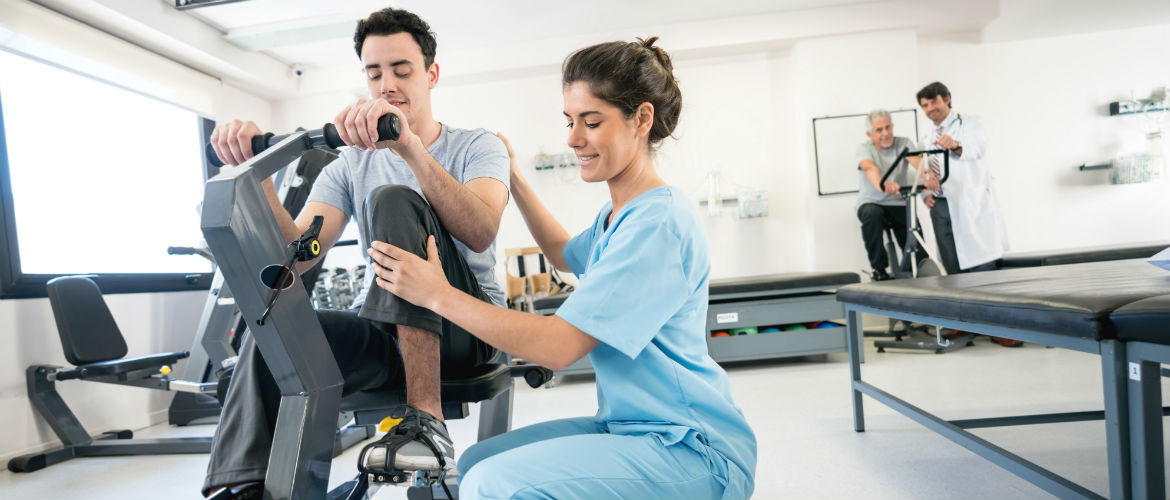Intensive outpatient rehabilitation is a critical component of the continuum of care for individuals recovering from substance abuse, mental health disorders, or other behavioral health challenges. At our facility, we understand the importance of providing comprehensive and personalized treatment to support our clients on their journey to recovery. In this guide, we will delve into the key aspects of intensive outpatient rehabilitation and how it can benefit those in need of structured support while maintaining their daily commitments.
Understanding Intensive Outpatient Rehabilitation
Intensive outpatient rehabilitation (IOR) is a structured treatment program designed to provide individuals with the support and resources they need to overcome substance abuse or mental health disorders. Unlike residential or inpatient programs, IOR allows clients to receive treatment during the day while returning home in the evenings. This flexibility enables individuals to continue their daily responsibilities such as work, school, or family obligations while receiving the necessary support for recovery.
The Components of Intensive Outpatient Rehabilitation
Our intensive outpatient rehabilitation program encompasses a range of therapeutic modalities and support services tailored to meet the unique needs of each client. These may include:
1. Individual Therapy
One-on-one counseling sessions with a licensed therapist provide clients with a safe and confidential space to explore their thoughts, emotions, and behaviors. Through individual therapy, clients can address underlying issues contributing to their substance abuse or mental health challenges and develop coping strategies for long-term recovery.
2. Group Therapy
Group therapy sessions offer clients the opportunity to connect with others who are facing similar challenges in a supportive and empathetic environment. Led by experienced facilitators, group therapy sessions may focus on topics such as relapse prevention, stress management, communication skills, and building healthy relationships.
3. Psychoeducation
Educational workshops and seminars provide clients with valuable information about addiction, mental health, coping skills, and strategies for maintaining sobriety. Psychoeducation sessions empower clients to make informed decisions about their recovery journey and equip them with the tools they need to navigate challenges effectively.
4. Medication Management
For individuals struggling with co-occurring mental health disorders, medication management services may be provided by a psychiatrist or psychiatric nurse practitioner. These professionals work closely with clients to assess their medication needs, monitor their progress, and make adjustments to their treatment plan as necessary.
5. Family Therapy
Family therapy sessions involve the client's loved ones in the treatment process, fostering communication, understanding, and support among family members. Family therapy addresses relationship dynamics, codependency issues, and strategies for rebuilding trust and strengthening familial bonds.
6. Holistic Therapies
In addition to traditional therapeutic approaches, our intensive outpatient rehabilitation program may incorporate holistic therapies such as yoga, mindfulness meditation, art therapy, and acupuncture. These complementary modalities promote relaxation, self-awareness, and overall well-being, enhancing the holistic nature of the recovery process.
The Benefits of Intensive Outpatient Rehabilitation
Intensive outpatient rehabilitation (IOR) offers several advantages for individuals seeking treatment for substance abuse or mental health disorders:
Flexibility
IOR allows clients to attend treatment sessions while maintaining their daily commitments, such as work, school, or family responsibilities. This flexibility enables individuals to continue their recovery journey without disrupting their lives.
Support
Clients receive ongoing support from licensed therapists, support staff, and peers throughout the intensive outpatient rehabilitation program. This network of support helps individuals stay motivated, accountable, and connected during their recovery journey.
Community
Group therapy sessions provide clients with a sense of community and belonging as they connect with others who understand their experiences and challenges. Peer support fosters empathy, encouragement, and camaraderie, reinforcing the importance of connection in the recovery process.
Skill-Building
Through individual therapy, psychoeducation, and experiential activities, clients develop essential coping skills, relapse prevention strategies, and self-care practices to support their long-term recovery goals. These skills empower individuals to navigate life's challenges without turning to substances or harmful behaviors.
Accountability
Regular attendance and participation in intensive outpatient rehabilitation sessions promote accountability and commitment to the recovery process. Clients are encouraged to set goals, track their progress, and celebrate milestones, fostering a sense of accomplishment and self-efficacy.
Conclusion
Intensive outpatient rehabilitation (IOR) is a highly effective treatment option for individuals seeking support for substance abuse, mental health disorders, and other behavioral health challenges. At our facility, we are committed to providing comprehensive, personalized care that addresses the unique needs of each client. Through a combination of individual therapy, group therapy, psychoeducation, holistic therapies, and family involvement, we empower our clients to achieve lasting recovery and live fulfilling lives free from the grips of addiction and mental illness.






Comments